6 sneakily dangerous things in the garage
The garage is a space that can be many things. It can be a shrine to a favorite car or a workspace that’s chock full of tools. Depending on who you are and what you enjoy in the garage, there are a number of things that may conspire to maim and injure the relatively delicate human body. Some of those are obvious. They wear warning labels and tamper-resistant guards aimed at protecting us from ourselves. Other items in the garage are just as dangerous but come with no warning label. Like a snake in the grass, you have to be aware to even know you are in danger. Here are six of those items you might have and not even think about.
Sleeves

We all wear clothes. Okay, most of us wear clothes and all of us have likely said the old saying about rolling up our sleeves and getting to work. That saying exists for a reason. As much of a danger as it is to be working on your hot rod in the nude, it can be just as dangerous to have loose clothing on. The machines we work on are very powerful, even the small ones like cordless drills, and are capable of catching a bit of cloth and whipping it into a fury.
This is often discussed when working with big equipment like lathes or milling machines, but an alternator pulley or cooling fan is just as—if not more—powerful. Adjusting carburetor tuning or ignition timing on an engine puts us in a place where we can get pulled into things quickly if not careful. An unbuttoned flannel shirt or hooded sweatshirt with strings hanging down is just as dangerous as sleeves too, so it pays to be conscious of what you are wearing and how it might conspire to hurt you.
Chips
No, we aren’t going to stop you from crunching away on some Lay’s while in the garage, but there are chips to be scared of. Any time you are drilling or turning you are cutting away small pieces of metal that are called chips. These slivers of metal are dangerous at first because they are often hot and thrown away from the workpiece. Safety glasses are critical there. Once they hit the floor the danger is not over though. Those chips are hot for a little while, but often sharp forever. They can become prickly little tire deflators in short order if you forget to sweep up or roll a tire over them without thinking.
Heavy things up high
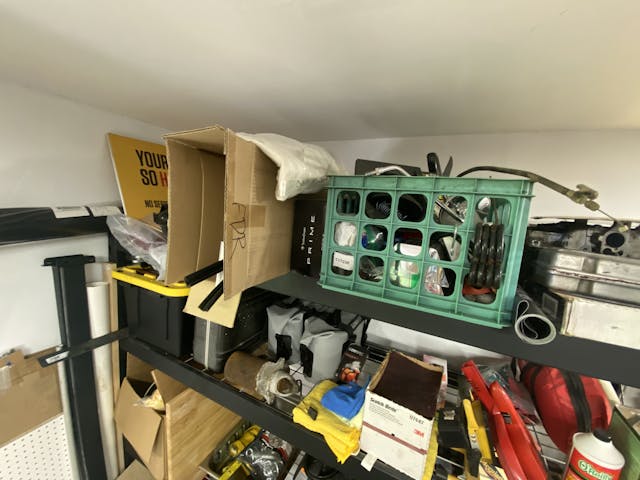
I’ll admit I’ve stood on a stool to grab that bin off the top shelf only to find it’s heavier than I remember when it finally slips off and all the weight is in my hands. Luckily that ended okay but it was merely luck that I wasn’t injured due to falling off the stool or dropping that bin on myself or something I care about. Garages serve as storage as much as a workspace for lots of us and while it is funny to think that the storage side could potentially be dangerous, it happens.
The fridge contents
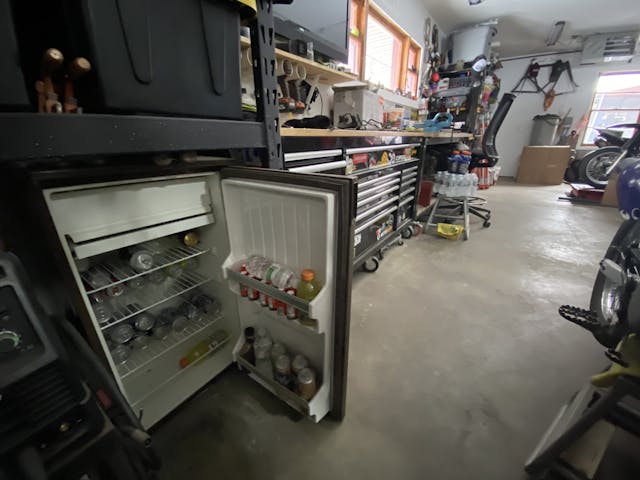
The garage fridge is a sacred place to some. It can help lubricate our tongues until the fun stories come out around our buddies. It can also help with press-fit parts by chilling them until they shrink just enough to make popping things in place a little easier. Lastly, it can cause us to forget the basics and not respect the power of the tools and vehicles we work on. When in doubt, stay sober until the project is done and it’s just the clean-up left.
Chargers or tenders
Sadly, we are not talking Dodge or chicken here. Seasonal storage is the (unfortunate) norm for many owners and that means keeping batteries topped up so cars will be ready when driving season arrives. There is also the rising popularity of battery tools which require occasional charging to keep in working order. Leaving either of these items plugged in for extended periods is often safe as the devices have fuses or safeties built in, but those are not fail-proof.
All it takes is a battery to get overcharged, or a wire to get rubbed a few too many times and cause an arc and suddenly there’s fire. It often happens silently and causes damage quickly. Check your chargers or tender regularly to see if they are warm to the touch or otherwise defective. If possible, unplug them when not needed as it will minimize the risk of something melting down without you being there to catch it.
Air

Yes, be scared of everything! Just kidding, this is really only for compressed air. As tempting as it is to use compressed air to blow dust and debris off your skin while working, it carries risks that not all are aware of. Most air lines in shops run at least 90psi of pressure and when that is funneled through a nozzle and pointed at our relatively porous skin there is the chance an air bubble can form under our skin. That is called an air embolism and causes serious health concerns. Blowing your skin off also can force contaminates into you skin rather than off of it. Human bodies cannot process many of the chemicals that are common in garage projects so on a long enough timeline this will poison you from within.
***
Of course, someone could make an argument that just about anything is dangerous and it would likely hold some truth. Anyone picking up tools and working in the garage accepts some risk but it is always best to understand the dangers you are engaging with and understand how to mitigate the risk if appropriate.
***
Check out the Hagerty Media homepage so you don’t miss a single story, or better yet, bookmark it. To get our best stories delivered right to your inbox, subscribe to our newsletters.

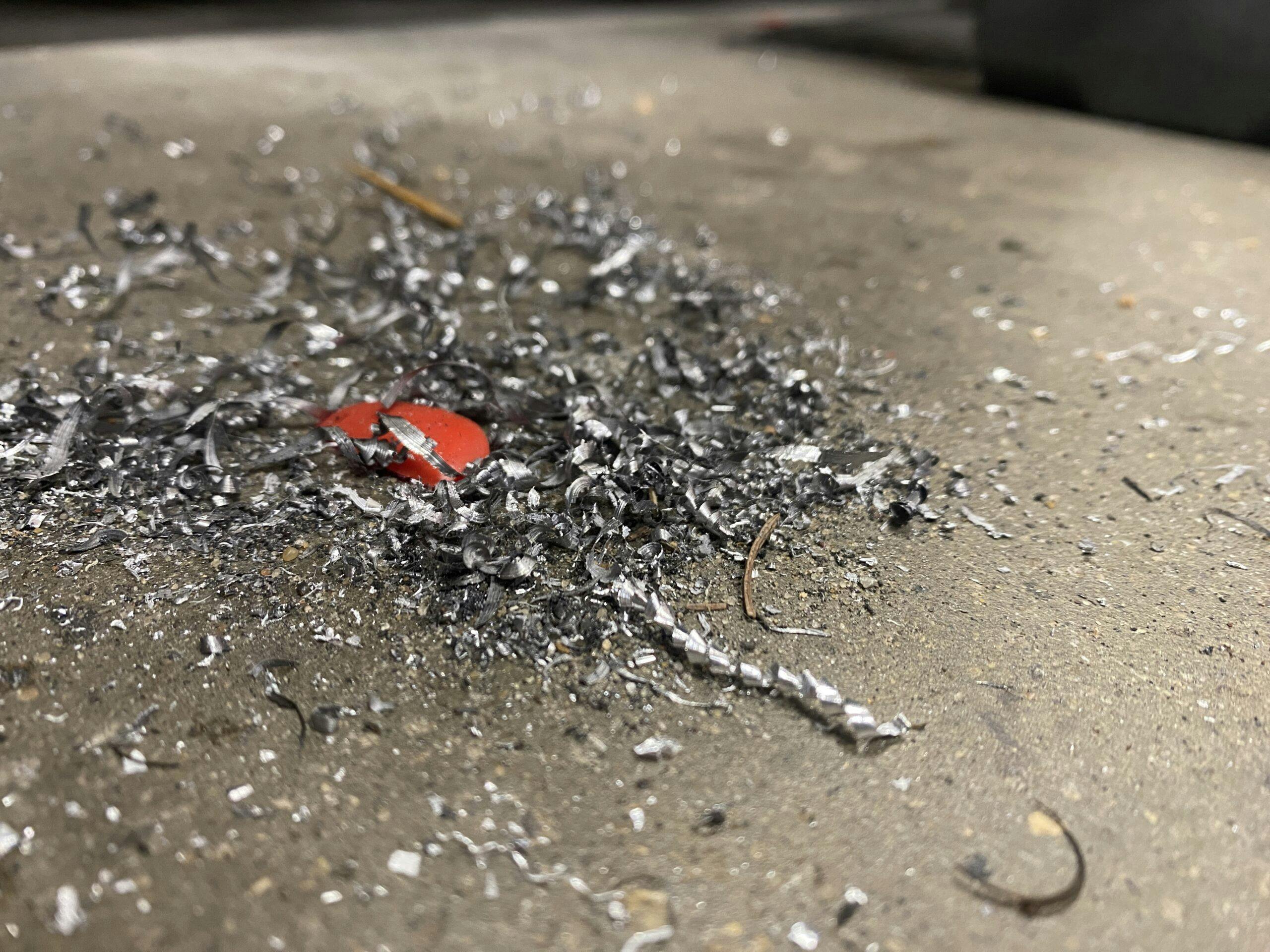
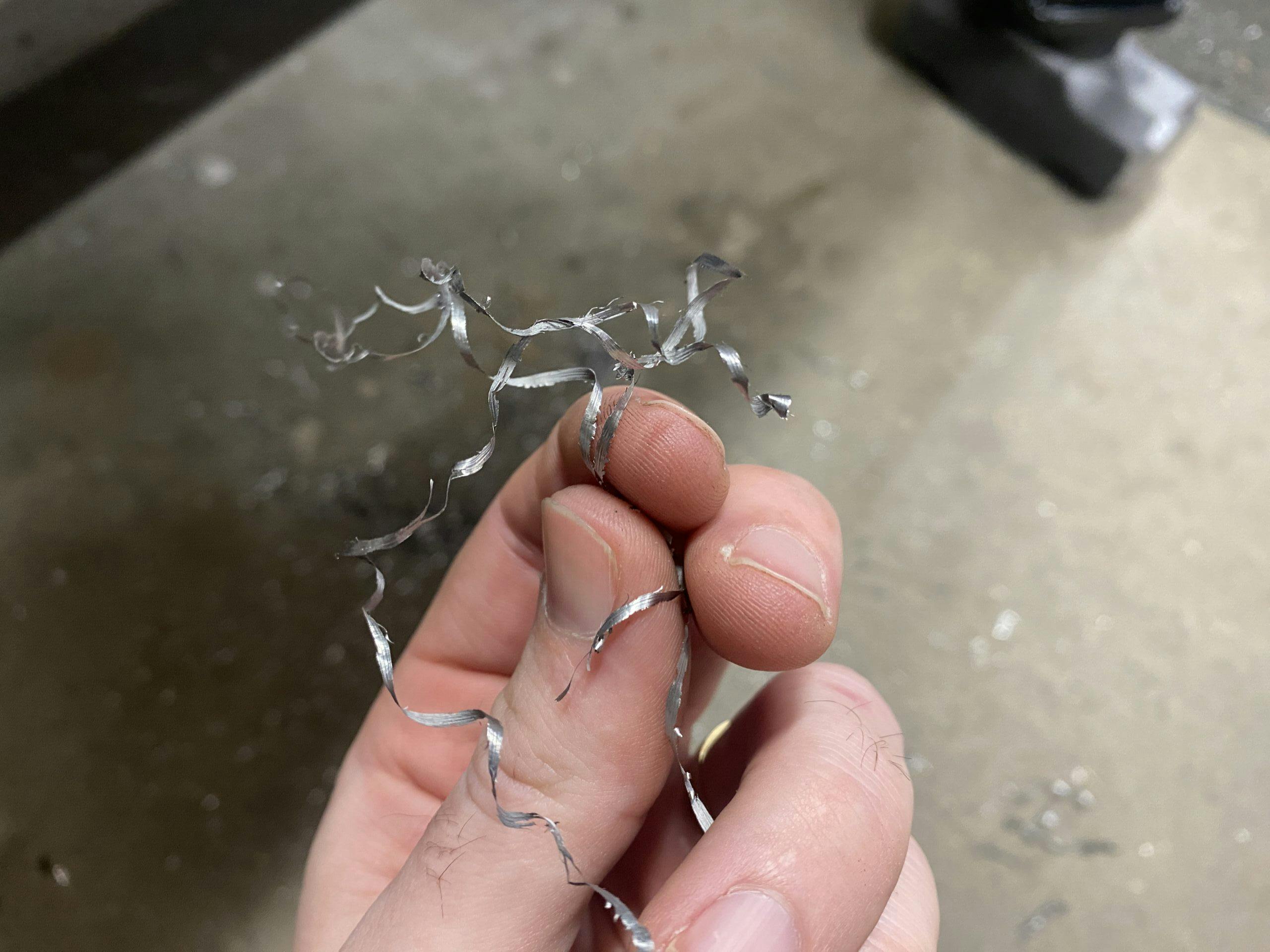
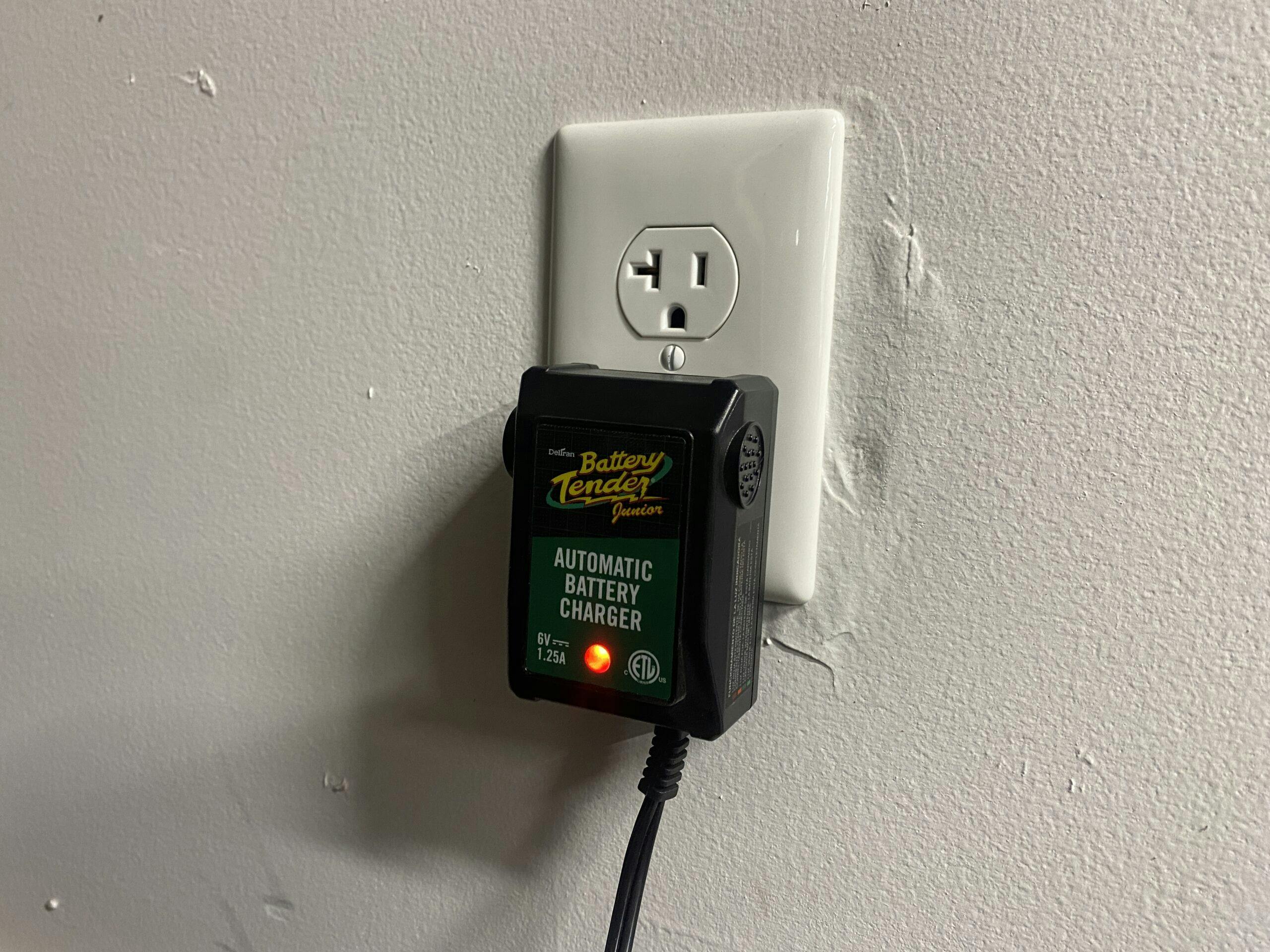
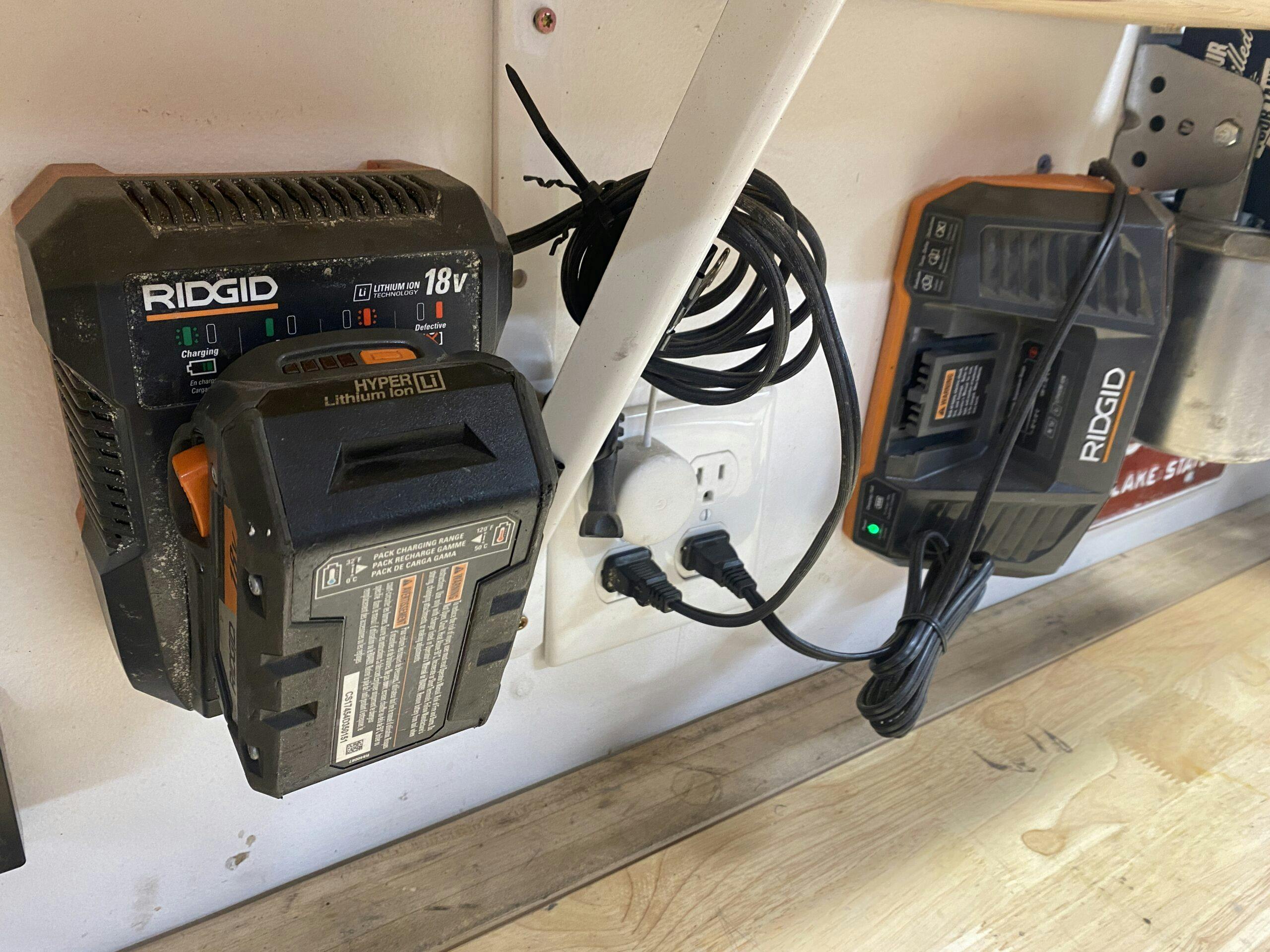


Forgot the number one most dangerous thing in the garage: THE CAR ITSELF!
Use care but keep band aids. No matter what you do at some point something will happen.
Fire extinguishers and band aids or anything to deal with an issue should be on hand.
Put the fire extinguisher by the door. If the fire is too big to put out, you can get out.
Air hose laying in a walk-way. Floor jack handle left horizontal, also in a walk-way – especially if load-bearing
My Boss once told me, ‘Don’t make your workspace ‘foolproof’. Make it damn-fool-proof. Damn fools are ingenious at ways to get hurt!”
How about the pressure sensitive top-off on air compressors. They are great while you are in the shop and using the compressor. But if you leave them on overnight or while you otherwise aren’t present, there will inevitably be some air leakage and the darn thing will turn on. They don’t always turn off by themselves. Left the shop once for a couple of hours and came back to a smoking, almost on fire belt. Lucky as can be that the pressure relief worked. If I’m not using the compressor for a while, I always pull the plug now and usually drain it too — even if I am still physically present.
Way back when a buddy was changing brake shoes…..same time frame when we used to shoe horses. Anyway, he was tugging on one of the springs which he had clamped in a vice grip. Grip let go, he had his face too close and took out a couple of front teeth. I learned way later from Dupont STOP training, whatever you are up to…….be prepared for the unexpected. Obviously you can’t predict what will happen, but if you think through the possibilities and act in a manner that will prevent injury if the unexpected occurs, you will avoid injury
Had some exhaust cutting to do under a car.
Sparks began to fly off my head with hat and safety glasses but did not think a hot metal spark would fall in my ear.
Long story short and one inner ear punctured that required a surgical patch. I can still hear but now with everyday tinnitus. I now recommend ear covers as well as the above mentioned items.
Be safe everyone.
Sleeves and gloves are definitely something to be mindful of getting grabbed by machinery.
Something else to think about when welding or grinding is the material of the clothes you wear. NEVER wear synthetics. Spatter or any other thing that’s hot can melt a hole right through nylon or rayon material and the material itself is a form of plastic so will continue to be hot enough to continue the burning of your skin. Always wear cotton and I believe wool is safe as well.
I am a dentist. I’m also a gear head of sorts. One thing, associated with air tools that is a “dental hazard” are air quick disconnects. Always make sure you’re gripping both sides of a quick disconnect when you go to release them. (…or make sure the line has zero air pressure….) If you do it single handed, the free end of the disconnect can become a projectile that can hit you in the mouth, break a tooth, and turn into a non-salvageable tooth that needs an implant. I’ve seen this about 3x in my forty+ years of practice. Teeth are expensive enough; I’d hate to see what a quick disconnect can do to an eye…..
Having played around with the power of this disconnects for entertainment, it is so wild I never thought of your point. Thanks for bringing it up!
If you ever get a piece of metal in your eye, don’t delay getting it looked at. Even 24 hrs can make a difference. It happened to me, and when I got it looked at the next day a “Corneal Rust Ring” (Google it) had already began to form around the metal. It was a holiday weekend and I went to a walk-in urgent care clinic. They couldn’t treat the problem, but the Physician’s Assistant made me promise (she was very concerned) that I would go immediately to the ER and not wait until Monday. The ER didn’t have any ophthalmologists available, so they contacted one at home and she met me at her office at 10PM on a weekend night! Following that ordeal I bought a Jackson full faceshield. Best thing ever…not only protects your eyes, but keeps your face clean when grinding.
Don’t use a battery charger with the charging unit plugged directly into the wall outlet. If it overheats and burns it may burn the wall. If you must use such a unit, have it plugged into a good extension cord, and the cord plugged into the wall outlet. Place the charger unit on a remote fireproof object away from any burnable items.
Excellent tip!
eyeglasses: modern lenses are made of material that will melt when struck by a grinder spark. While your eyes: glasses may protect your eyes a little, your wallet won’t appreciate having to buy new lenses (sold only in pairs). Face shields or goggles are cheap in comparison.
feet: wearing flip flops in the shop is an invitation to disaster. Steel toed boots are ideal but you may be able to skate by with something a little less protective.
lungs: If you are filling the air with particulate matter, wear a mask. Welding and use of harsh chemicals, including aerosol paints, will call for greater protection.
This will be an endless list.
As a former firefighter I’d double down on wearing rings, bracelets, watches or necklaces in a shop. Also storing anything oil soaked inside is asking for spontaneous combustion and a good fire. Outside storage in a sealed metal trash can at minimum. Doing almost anything without eye protection is just plain dumb.
Don’t forget the cliche that IF it can go wrong eventually it will…..
Was 1957, we were sawing wood at this old farmer’s place, using a saw rig with 7 hp Fairbanks engine, extra shaft of saw mandrel sticking out, his ragged overall jacket caught, he spun like an airplane propeller, head hitting the ground, dead at the scene. Always beware of shafts sticking out with no cover or guard.